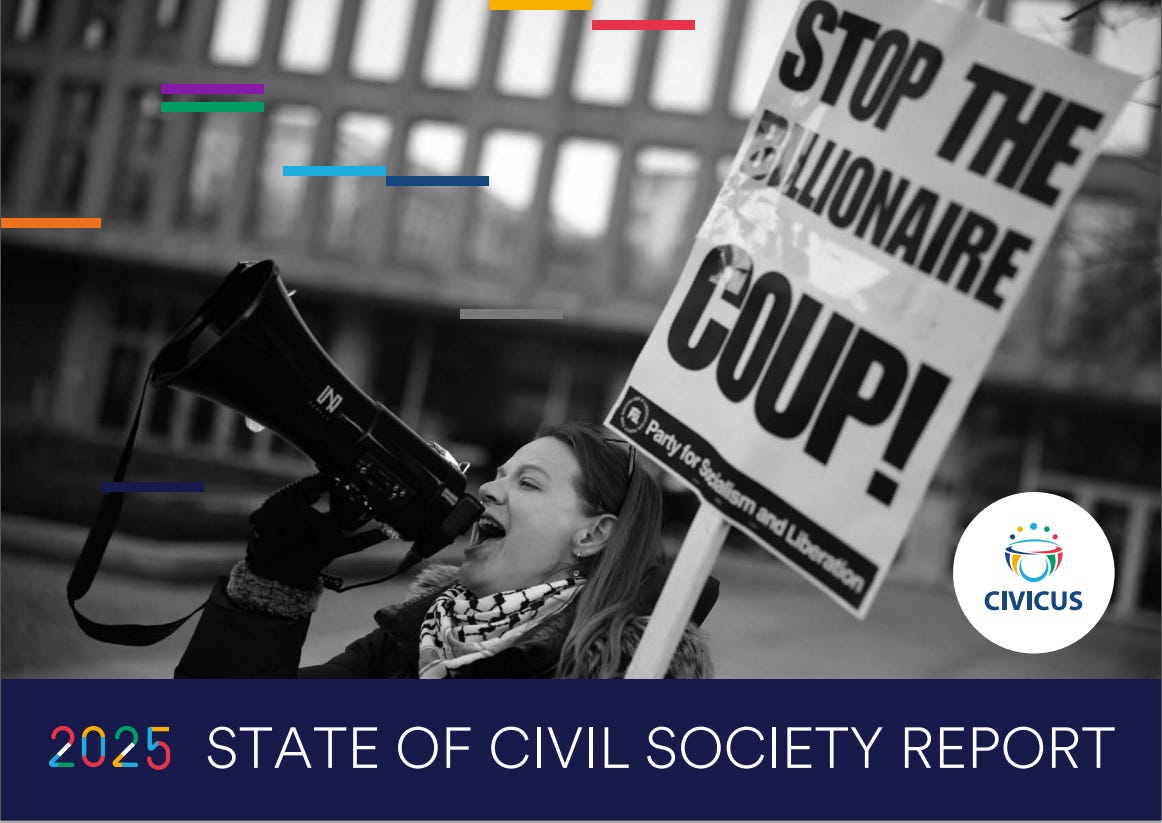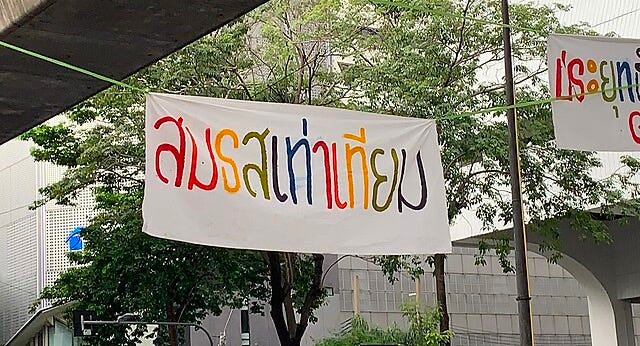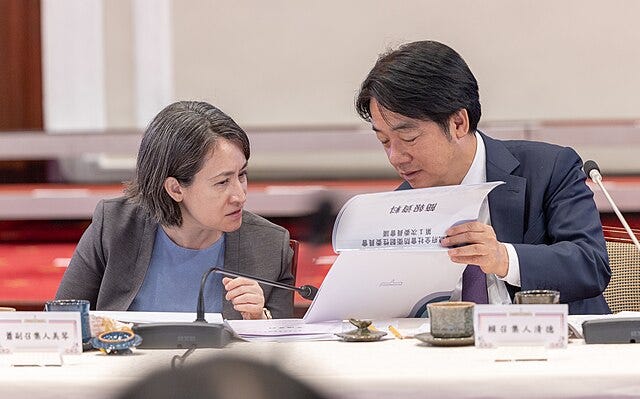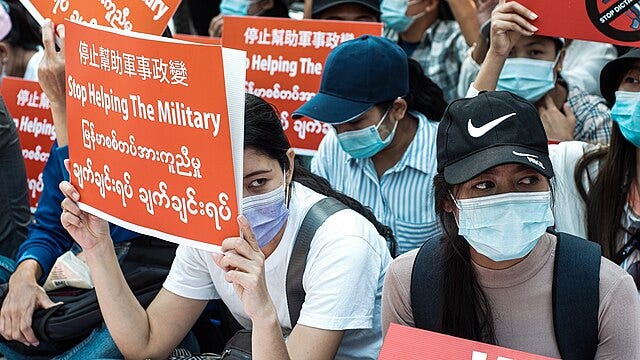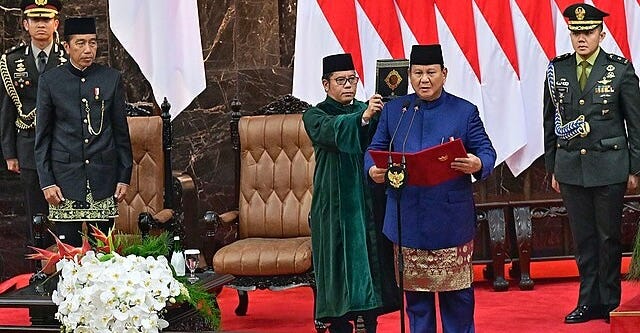Report Roundup: CIVICUS | The State of Civil Society, 2025
A breakdown of the highs and lows of civil resistance in Asia over the past year, and how civil society can adapt for the future
This newsletter has only been up and running for a little over a month, and it’s already worrying how often I start these pieces with something along the lines of “phoooft… well, that’s not looking good, is it?”
This week I’m taking a look at the recently released State of Civil Society Report: 2025 produced by CIVICUS, a non-profit that tracks civil society developments around the world, and it probably doesn’t need to be said, but the report doesn’t make for the most cheerful reading.
In Asia, civil society groups focusing on Myanmar are essentially seeing much — or, in some cases, all — of their funding disappear with the gutting of USAID. But there are some bright moments, too, like South Korea defeating a coup attempt with the power of anti-authoritarian anger.
The CIVICUS report highlights some major civil society/resistance movements that have made positive impacts, as well as worrying cases of regression and decline.
Let's take a look at some of the main developments in Asia over the last year.
In Asia, the (mostly) good
South Korea’s failed coup
May it henceforth serve as a reminder to budding authoritarians: trying to unilaterally seize power in a country with a living memory of having fought for democracy from a previous military dictatorship will provoke widespread fury. Thou shalt find said population fired up and pissed off (and, in some cases, also just pissed) enough to face off against soldiers carrying assault weapons.
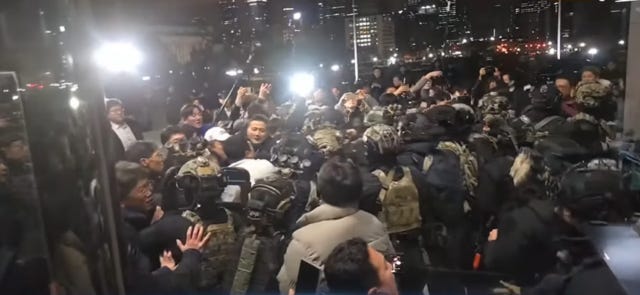
Saying “hey, ever thought about trying out that whole martial law thing again?” was predictably going to make the blood of most South Koreans boil, so it was an ‘interesting’ political move by Yoon Suk Yeol. Today, South Korea’s Constitutional Court upheld Yoon’s impeachment, removing him from office, which means snap elections are on the horizon.
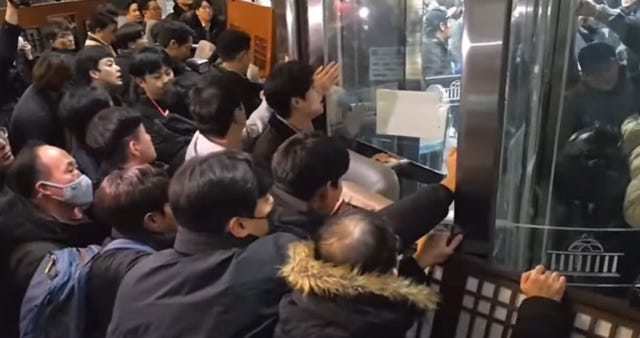
This process wasn’t always smooth or perfect, but on the whole Koreans have taught the world a few lessons on how fiercely democracy needs to be protected. The stories of people (civilians and lawmakers) showing up to the National Assembly to shout down those attempting to seize power are nothing short of incredible. I don’t think I’ve ever seen an example where someone literally grabbed the gun of a soldier holding back crowds, and the soldier was the one who backed away looking pretty scared.
Thailand’s legalisation of same-sex marriage
Thailand, the first Southeast Asian country to decriminalise cannabis, has nabbed another regional first by legalising same-sex marriage. This has been a long time coming, and it’s genuinely encouraging and heartwarming to see it become reality.
It’s been a mixed bag for LGBTQ+ rights in Southeast Asia for years: conditions have deteriorated in Indonesia, Malaysia and Brunei, and while Singapore finally repealed Section 377A — a colonial-era law that criminalised sex between men — this was accompanied by constitutional amendments that block legal challenges to the definition of marriage as being between a man and a woman.
But we take the wins where we can, so congrats, Thailand, and here’s hoping this will also help to fuel the advancement of LGBTQ+ rights with the neighbours.
Taiwan elects
Taiwan also got a shout-out in CIVICUS’s report for last year’s presidential elections, which — despite the threat of election meddling, largely from China — saw the democratic process work relatively well: in January 2024, the incumbent Democratic Progressive Party won the majority of the vote, with Lai Ching-te (the then-vice president) being appointed president four months later.
While the issue of Taiwan’s sovereignty remains a contentious issue, even governments without formal ties to the country have congratulated the island nation on its electoral process.
That said… not everything that’s unfolded in Taiwanese politics since has been great.
Lai’s recent proposal to bring military tribunals back to Taiwan — to hunt out those involved in Chinese influence operations and espionage — doesn’t seem particularly encouraging in a country that had suffered greatly under martial law and dictatorship. It’s more complicated than just a sign of democratic regression: as someone who used to work as a news editor at a Taiwanese TV station, I can attest that there have been A LOT of instances of people — often either current or former military personnel, even high-ranking officers in senior positions — getting arrested on charges of spying for China, so I understand that there’s a very real and tangible fear of Chinese infiltration and interference.
This isn’t necessarily something that’s come out of nowhere. We’re going to need to keep an eye on how things develop; as they say, the devil is in the details.
Special mention: The arrest of Rodrigo Duterte
CIVICUS’s report was written before the arrest of Rodrigo Duterte, former Philippines president and extrajudicial killings aficionado, on charges of crimes against humanity by the International Criminal Court.
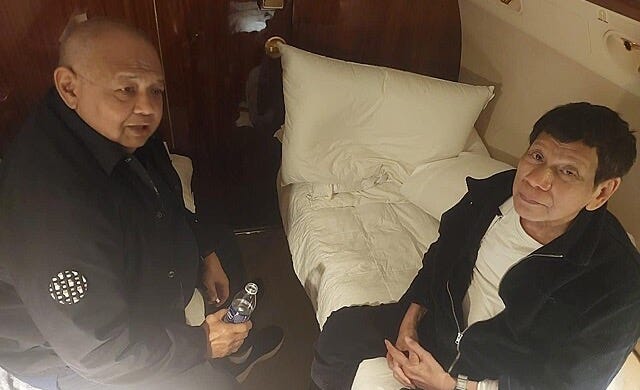
The ICC also has warrants out for Russian president Vladimir Putin and Israeli prime minister Benjamin Netanyahu, but the likelihood of those warrants being enforced is as high as finding a snowball in the desert. So this arrest — making Duterte the first Asian leader to be arrested by the ICC — is a rare demonstration that sometimes powerful people who’ve caused widespread violence and suffering can be held to account.
As Karen Gomez-Dumpit, a former Commissioner for the Philippines Commission on Human Rights, said in an interview with Currents, “The impossible has happened.” You can listen to the first part here, with the second part coming this Sunday.
The ungood
The USAID freeze
Since jumping into the orbit of Donald Trump and helping him get reelected, Elon Musk and his Department of Government Efficiency (DOGE) have been running riot. One of DOGE’s first moves was to place a freeze on funding for USAID (a US government agency responsible for administrating foreign aid). This has had extremely wide-reaching consequences across the world. For more information on the fallout of the gutting of USAID you can read an earlier issue of Currents here.

It’d sound too much even for the most cynically-minded dystopian novelist, but we’re now living out a timeline where the world’s richest man is cutting off funding for life-saving projects for the poorest out there.
This has already been a nightmare for many civil society organisations the world over, one of the worst affected places being…
Myanmar continues to spiral
Numerous civil society and exile media groups working on Myanmar were either largely or wholly funded by USAID and have now been left high and dry. The fall-out has been devastating, as CIVICUS notes:
The USAID spending freeze, imposed at Musk’s prompting in January 2025, caused instant chaos. Programmes that provide the world’s poorest and most vulnerable people with vital services like healthcare shut down. Refugees from Myanmar’s persecuted Rohingya minority, for example, were left without the most basic aid in camps in Bangladesh.
This could hardly have come at a worst time. The country is in a state of civil war: areas under government control are experiencing severe repression and violence as the junta struggles to maintain control. Civilian-populated areas have been pounded with indiscriminate airstrikes and shelling — as CIVICUS highlights, countries like China, India and Russia are still providing arms to the junta — and access to necessities like food and healthcare have become extremely patchy.
(Note: The CIVICUS report was published before the recent earthquake which devastated parts of Myanmar and therefore does not contain any information about the destruction this has also caused.)
Prabowo claims power in Indonesia
CIVICUS is not exactly flattering about the results of last year’s election in Indonesia: “[Elections] drove Indonesia toward more authoritarian rule under Prabowo Subianto, a former general accused of human rights abuses”.
It’s a fair point — in certain circles, Prabowo’s name is synonymous with human rights abuses (something he was banned from entering the United States in the late 90s for).
At home, though, Prabowo has managed an astonishing job at rebranding his image in Indonesia — the former special forces army general who was once the son-in-law of former Indonesian dictator Suharto, won the Indonesia elections in May last year with almost 60% of the vote, taking office the following October.
It wouldn’t be the first time in recent years where whitewashing of a troubling legacy has occurred. Philippines president Ferdinand ‘Bongbong’ Marcos Jr., son of the former Philippine dictator who ushered in a generation of marital law, was elected with overwhelming support in 2022. But in some ways Bongbong has exceeded the expectations of a number of civil society activists (especially for allowing the arrest of former president Duterte on ICC charges).
Prabowo has been president for about six months now. Just this week there have been protests and demonstrations across the country over a new law which was introduced which expands the number of civil service jobs that can employ military personnel. For many Indonesians, this is a worrying move that indicates a slow creep towards the re-militarisation of government offices.
How can civil society adapt to the current times?
From the outset, the CIVICUS report sets the stage with some pretty dire warnings: the online disinformation/misinformation/state propaganda campaigns are on the rise alongside right-wing or far-right populism; tech and business leaders are cozying up to politicians with authoritarian tendencies, while wealth inequality, labour exploitation and cost of living crises become more entrenched in various societies; at the same time, threats posed by artificial intelligence (AI) loom large, war continues to rage in places like Gaza, Ukraine, Myanmar and Sudan, and all the while not enough is being done to address the ongoing climate crisis.
As such, the report emphasises the need for solidarity and flexibility in civil society networks, and the need to step up to the mark during these times.
The most successful civil society actions of recent years have embodied movement characteristics: distributed leadership, nimble decision-making, a focus on shared values, a willingness to listen and the ability to mobilise broad constituencies rapidly [while also prioritising] authentic community connections, particularly with those most excluded from power.
One of the most important aspects is in presenting effective counter-narratives to combat things like populism, nationalism and authoritarianism:
These counter-narratives must speak to people’s legitimate anxieties, including about economic precarity, security concerns and lack of voice, while inspiring optimism and offering inclusive and rights-based solutions that push back against populist appeals to scapegoat excluded groups.
Other aspects for working to change things come in the form of principled leadership, building and sustaining solidarity in resistance, setting out ‘early warning systems’ to highlight the direction those in power are heading (and not just reacting to it after the fact), with other aspects along the lines of establishing communities with diverse and sustainable resource models.
You don’t need me to tell you that things are looking grim right now. But while things have been nightmarish in many places, there have still been remarkable instances of hope, resilience and change, defending people's rights or solidly rejecting authoritarian moves.
We need to be aware of the tragedies and horrors of the world, but it's just as important to never forget the displays of courage we've seen — from that, hope springs eternal.



